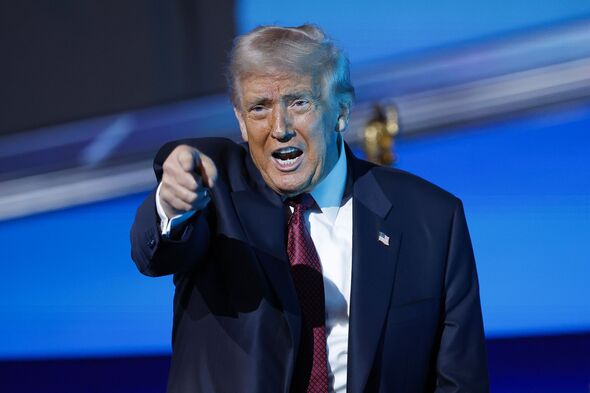A covert plan to assassinate Venezuelan President Nicolás Maduro, reminiscent of the operation that killed Osama bin Laden, is reportedly being considered by the White House. According to sources cited by The Daily Mail, the operation is already “teed up” and awaits further authorization. This development follows the U.S. Justice Department’s 2020 indictment of Maduro, accusing him of transforming Venezuela into a “criminal enterprise” benefiting drug traffickers and terror groups.
The indictment, issued by prosecutors in New York, alleges that Maduro conspired with Colombian rebels and military officials to flood the United States with cocaine, effectively weaponizing the drug trade against American citizens. Despite the U.S. intelligence community’s assertions that claims linking Maduro to the Tren de Aragua group are unfounded, the U.S. military has amassed a significant number of naval vessels off the coast of South America, raising concerns of potential military action against Venezuela.
Political Tensions and Military Preparations
Reports indicate that a Special Forces operation targeting Maduro is in the works, similar to the SEAL Team Six raid authorized by former President Barack Obama in 2011, which resulted in bin Laden’s death. Senate Republicans recently voted against legislation designed to limit President Donald Trump‘s ability to launch strikes against Venezuela. This decision reflects a willingness among lawmakers to provide Trump with the flexibility to continue military preparations in the region.
Senator Jim Risch, the Republican chair of the Senate Foreign Relations Committee, stated that the administration’s actions aim to protect Americans from the influx of lethal narcotics. Risch emphasized that drug-smuggling operations pose a significant threat, claiming they could “kill 25 to 50 thousand people,” drawing parallels to the tragic consequences of the September 11 attacks.
Since early September, the U.S. military has conducted multiple strikes against alleged drug-trafficking vessels in the Caribbean and eastern Pacific, resulting in a rising death toll. Lawmakers have demanded more transparency regarding these military operations, particularly concerning evidence linking the targeted vessels to drug trafficking.
Legal and Ethical Concerns
The Trump administration has justified these military actions as necessary to combat drug cartels, asserting that the U.S. is engaged in an “armed conflict” with these organizations. This stance relies on the same legal framework the Bush administration used to declare a war on terrorism following the 9/11 attacks. Nevertheless, the lack of legal investigations and traditional congressional declarations of war has sparked a debate about presidential authority.
Representative Adam Smith has called for a briefing from the White House, expressing concerns over the “staggering lack of transparency” surrounding military operations. Trump has made it clear that he intends to circumvent Congress, declaring, “we’re just gonna kill people,” when asked about potential strikes against drug traffickers.
During a recent press conference, Trump reiterated that the military strikes are a strategy to save American lives, expressing confidence in their legal authority to conduct such operations. He hinted at possible future strikes on land, stating, “We’re totally prepared to do that.”
As these developments unfold, the international community watches closely, aware that any military action against Venezuela could have profound implications for U.S.-Latin American relations and regional stability. The situation remains fluid, with potential consequences for both U.S. policy and the lives of Venezuelans caught in the crossfire.







































































